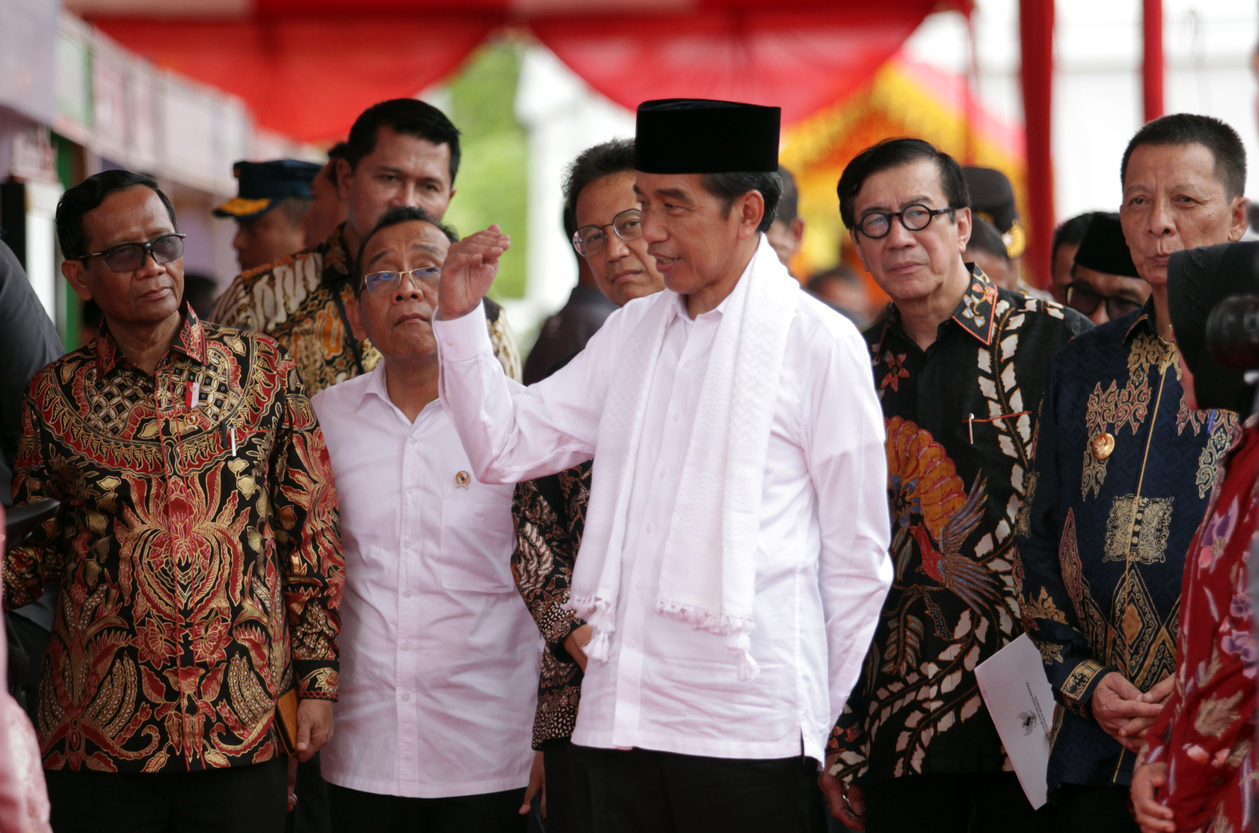On June 27, 2023, above the very ground where people of the Acehnese ethnic group were tortured and raped by soldiers during the insurgency of the Islamic separatist Free Aceh Movement in 1998, the Indonesian government, led by President Joko “Jokowi” Widodo, launched a reparations program to redress the country’s gross human rights violations.
The announcement of the reparations program followed the president’s official statement earlier this year, which recognised and “expressed regret” about 12 serious rights violations committed between 1965 and 2003. During President Suharto’s New Order leadership, the country faced a political struggle against communism, resulting in a tragic toll of no fewer than 500,000 people killed or missing, with some estimates suggesting the number could be in the millions. Beyond the government’s prosecution of alleged communists, those voicing opposition to the state, from activists to freedom movements, were forcibly silenced.
In both his 2014 and 2019 presidential campaigns, Jokowi included human rights as one of the primary concerns and promised to address historical atrocities. The proposed reparations signal significant progress towards fulfilling those promises, yet some see the program as an effort to conceal sinister truths about the current administration and protect those who should really be held accountable.
Continuity with past harms
A young nation led by an ideologically tenacious founding father, a dictatorial military general, and later another general turned politician, Indonesia has quite a complex record with the military. For nearly half of the country’s independent years, the armed forces directly influenced civil society through the dual function doctrine, which saw many high-ranking positions filled by active personnel.
To this day, it is not hard to see remnants of the past. Many strategic positions are occupied by active and former military leaders. Most prominently, the current coordinating minister of maritime and investments, Luhut Binsar Pandjaitan, once had a bright career in the armed forces. Probably the most versatile person in the country due to his joint designations as chairman of the National Water Resources Council and of the Jakarta-Bandung High-Speed Train Committee, the minister’s main title is just one of dozens he now holds. Furthermore, former chief of the Indonesian National Police, Tito Karnavian, now serves as the minister of home affairs and even received an additional appointment last year as ad interim minister of administrative and bureaucratic reform.
What is most concerning is the human rights record of the state institutions and the people at their helms. A 2022 report shows that 72 extrajudicial killings were committed by the Indonesian police and armed forces within the span of just one year. Further, the recently retired chief of the Jakarta Military Command was appointed despite public outcry due to his involvement in the 1997–1998 forced disappearances of activists—at which time he reported directly to none other than the current minister of defence, Prabowo Subianto.
A questionable gesture
Critics of the government’s recent attempts at repair have mainly focused on the choice of methods and expressions. For one, although it was the first formal state recognition of a number of gross violations, the January statement was not unequivocal: it did not contain an apology, nor any concrete calls to action to hold individuals involved in the crimes accountable.
The demands of victims and their families have always been clear: retributive justice in the form of a courtroom trial. When the June launch took place, it became clear that the government was not willing to satisfy their expectations. Initiated by the Non-Judicial Resolution Team for Serious Violations of Human Rights (PPHAM), the government’s proposed commitment includes providing compensation for the losses suffered through educational and health packages, house renovations, and return visas for those in exile.
Aside from the concerns regarding whether this new program will reach all of the supposed beneficiaries, who might number in the millions and include victims of recent events, some fear that the purpose of this gesture is to appease and discourage them from pursuing other means of bringing justice. In other words, the state is allegedly facilitating impunity. Given that those close to the president may have played a part in perpetrating these monstrous acts, this belief is not without merit.
Hope for the future?
In truth, the state has always had the opportunity to right the wrongs of its past once it entered the reformation era, when, following political and economic crises, Suharto’s authoritarian control was replaced by a real democracy. In November 2015, for example, the International People’s Tribunal (IPT) 1965 was held in the Netherlands. Administered by the victims and their families as well as members of domestic and global civil society instead of an international body like the United Nations, the IPT based its legitimacy on the foundational principle of universal human rights. The IPT named the Indonesian government as a defendant. However, the state never entertained the invitation.
Though some have argued that the reparations program is a sign of progress, it may be too soon to conclude that it is a meaningful one. As the program is just commencing and PPHAM proceeds with its work, rights advocates and affected parties (among others) should closely observe how many more tragedies will be addressed and demand substantive actions. Besides putting past perpetrators on trial, reparations should involve cleansing the cabinet of those with dirty hands. Lip service unaccompanied by material justice is meaningless to victims.
In 2024, the Indonesian people will go to the polls to vote for the next president. Jokowi’s successor will bear the heavy responsibility of ensuring that the reparations programs are not undermined by conflicting interests. Though one of the candidates, former general Subianto, is implicated in the kidnappings of 1997 and 1998, for which he must answer, it is now clear to the people that the era of denial or mere apologies is over. Instead, it is time to make sure that all the wrongdoers face the consequences of their actions and stop similar events from occurring.

